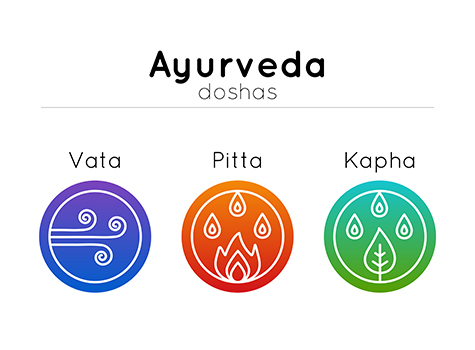
Hippocrates, the father of medicine, said that “All Disease Begins in the Gut”.
Hippocrates was a Greek physician who is considered one of the most outstanding figures in the history of medicine. He is often referred to as the “Father of Medicine” in recognition of his lasting contributions to the field, and as the founder of the Hippocratic medical system developed in Greece around 300 BCE.
How did he get this knowledge? It is proposed that majority of the recommendations in the Greek medical system were influenced by the earlier civilizations such an ancient Sumerian and Egyptian civilizations. There is also a strong influence from the Ayurvedic medical system dating back 5000 years. The Susruta-samhita is one of the most important surviving ancient treatises on medicine and is considered a foundational text of Ayurveda.
There are theories that a Greek physician named Ectasias took the knowledge of Susruta, and likely handed it to Hippocrates. The book was probably in the library of Alexandria, and, the worlds of Persia, Arabia, and Egypt knew the medical literature of the Vedas from the trading ships that sailed from India and China.
There are differences among Ayurveda and the medical system developed by Hippocrates, but the one major commonality is establishing the importance of the gut as the seat of health.
Ayurveda categorizes three doshas as substances that flow or circulate within the body, bringing disease through excess or deficiency.
“Vata, pitta and kapha are waste products (malas) of digestion taking place in the stomach and in the body components with an essential role in maintaining body functions. But they are mala-dhatus only when they remain in normal range; as soon as they become deficient or excessive, they become doshas capable of upsetting the functions of the other dhatus.” (Valiathan, Introduction to Ayurveda, p 29)
Thus the Ayurvedic medical system and the Hippocratic medical system both place a great emphasis on improving digestion and having a healthy gut to prevent disease.
Majority of our immune system is in our gut. Our gastrointestinal system contains 100 million neurons and 10-100 trillion different microbes. We have more microbes than cells in our body. The quantity and variety of these bacteria determine our health, protect us from infection, support metabolism, and promote digestion and elimination.
Throughout the millennia and across different cultures, people have long appreciated close connection between the brain and gut. People speak of “gut feelings” and “gut instincts.” Anxiety may give someone “butterflies in the stomach,” and “having guts” is a way to describe courage.
Our physical and mental health is dependent upon the health of our gut. Unfortunately, most of the people today have inadequate beneficial (good) bacteria, excessive damaging (bad) bacteria, and a lack of bacterial diversity.
This is due to multiple factors:
• Poor diet – a diet high in processed foods and lacking in good fiber
• Excessive use of medications (pain medicines, antacids, antidepressants and anti-biotics)
• Chronic stress (which can alter digestive secretion, gut permeability, blood flow, sensitivity, and even change bacterial composition)
• Environmental toxins (pesticides, toxins, preservatives, artificial colors, artificial sweeteners, herbicides, and hormones & anti-biotics given to animals)
• Birth and Childhood History (mother’s gut health; natural birth vs. C-section; breastfed or formula-fed; first foods while weaning, use of anti-biotics during childhood)
All these factors ultimately lead to unbalanced gut flora (dysbiosis), and an increased susceptibility to intestinal permeability (leaky gut). For some people this may cause symptoms like bloating, heartburn, IBS, and excess gas, while for others it may lead to more chronic conditions such as obesity, diabetes, heart disease, and cancer.
Evidence from multiple research studies leads us to believe that these problems originate in the gut, and healing the gut can lead to significant improvement in mental and physical health. With so much information now available bout the connection between our gut and our health, there’s no reason why you shouldn’t be doing everything you can to improve the integrity of your gut lining, encourage a positive bacterial environment, and optimize the overall function of your gastrointestinal system.
So what does that mean in practical terms?
Here are some steps to take to support the gut and improve your overall health:
• Get adequate sleep – respect your internal clock (circadian rhythm)
• Exercise frequently – be physically active
• Drink 2-3 liters of water (unless otherwise advised)
• Eat a wide variety of plant foods
• Eat a variety of whole fruits and vegetables. Avoid juicing.
• Eat a variety of whole grains. Eat intact whole grains and avoid processed foods made from flour (atta or maida).
• Eat a variety of legumes, pulses, peas, beans, and lentils. Sprout beans to make them digestible and increase other nutrients.
• Eat a variety of fermented foods to get probiotics.
Here is a list of foods that have live cultures:
• Fermented dairy foods such as yogurt, kefir and aged cheeses
• Kimchi and Sauerkraut
• Miso and Tempeh
• Kombucha
• Fermented batter products such as Idli, Dosa, Dhokla
• Homemade pickles (in limited amounts)
Minimize:
• Refined starches and simple sugars
• NSAIDs (Ibuprofen, Advil, Motrin, etc)
• Alcohol
• Antibiotics (unless absolutely necessary)
• Packaged processed foods
• Excess amounts of protein, especially animal protein
• Soda, diet drinks, energy drinks
• Exposure to pesticides, preservatives, and artificial chemicals
We are what we eat; and if we don’t feed our microbes well, they will literally start eating us. Therefore follow the above steps to enhance your gut microbiome and enjoy a healthy long life!
———-
Parul Kharod, MS, RD, LDN is a registered dietitian and licensed nutritionist and works as a Clinical Dietitian with Outpatient Nutrition Services at WakeMed Hospital in Cary and Raleigh. She can be reached at [email protected]
Posted: Monday, April 15, 2019



